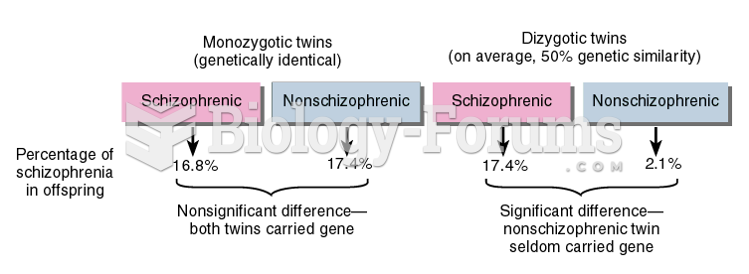|
|
|
The people with the highest levels of LDL are Mexican American males and non-Hispanic black females.
To maintain good kidney function, you should drink at least 3 quarts of water daily. Water dilutes urine and helps prevent concentrations of salts and minerals that can lead to kidney stone formation. Chronic dehydration is a major contributor to the development of kidney stones.
Inotropic therapy does not have a role in the treatment of most heart failure patients. These drugs can make patients feel and function better but usually do not lengthen the predicted length of their lives.
This year, an estimated 1.4 million Americans will have a new or recurrent heart attack.
The first oncogene was discovered in 1970 and was termed SRC (pronounced "SARK").







